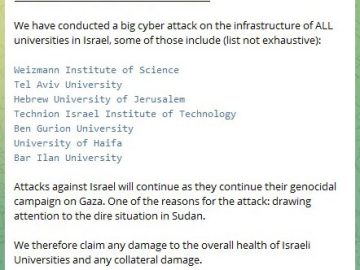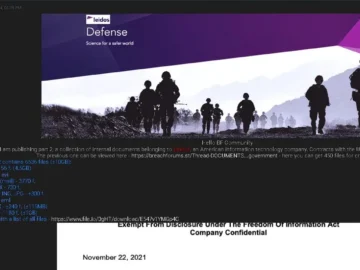October is here, and Cybersecurity Awareness Month 2025 is about to come into being. Department of Homeland Security (DHS) and CISA have initiated this year’s campaign with the theme of ‘Building our cyber safe culture’. The goal is to make cybersecurity an everyday word for governments, businesses, and individuals. The call is made not only to agencies and organizations but to you and me, because we all have a way of keeping digital systems that are in a world of their own with water, power, food, finance, or communication. One of the simplest few, but often overlooked, elements of this mission are the passwords.
With AI mimicking voices, sending credible emails, and attempting several hacking endeavors, some individuals ask, Do passwords still matter? Yes, they still do.
The password continues to be the first barrier that protects criminals from entering your most secret information.
But Why Passwords Still Matter
In 2025, we have fingerprint scans, face recognition, and multi-factor apps, yet passwords remain the first line of defense for most accounts. Reports show they were still the most common security method in 2023, and the password management market is projected to exceed $7 billion by 2030. Clearly, they are not disappearing anytime soon.
The issue is not that passwords don’t work. The issue is how people use them. Many still rely on weak choices like 12345 or personal details such as birthdays or pet names. That’s the digital equivalent of locking your door but leaving the key sticking out. For modern hacking tools powered by AI, such shortcuts are effortless to break.

So why do we keep doing it? Because we are human. Between banking, email, social media, shopping, and work apps, most of us manage dozens of accounts. Creating and remembering a unique, 16-character password for each one feels impossible. Faced with that challenge, people recycle the same password across accounts. The risk is obvious: if one site gets breached, hackers suddenly have access to everything.
It’s not laziness, it’s psychology. Our brains aren’t designed to memorize random strings of numbers, letters, and symbols. Without help, falling back on bad habits is almost guaranteed.
Password Managers, Comes to Rescue
The good news is technology has already given us a way out of this memory trap. Password managers can generate long, complex, and unique passwords for every account, then safely store them for you. All you need to remember is one master password.
Think of it as hiring a digital bodyguard who never forgets, never gets tired, and never writes your secrets on sticky notes. It’s one of the simplest steps anyone can take to reduce the risk of being hacked.
As author Abhijit Naskar, Sonnets from The Mountaintop reminds us:
“The purpose of a strong password is not to keep your accounts safe, but to keep your accounts moderately secure against common scammers, however, if you become a target of actual hackers, or a person of interest to the government, have no doubt, your internet activities are already monitored.”
This quote underlines a key point: passwords are not a silver bullet. They are a first line of defense. And while they may not stop attackers or state surveillance, they do protect against everyday cybercriminals trying to break into your bank, email, or social media accounts.
What Makes a Strong Password


For Cybersecurity Awareness Month 2025, CISA reminds us of three golden rules for stronger passwords:
- Make them long. At least 16 characters. Longer is always better.
- Make them random. Use mixed letters, numbers, and symbols—or try a “passphrase” of several unrelated words.
- Example: HorsePurpleHatRunBay is far better than Password123.
- Make them unique. Never reuse passwords across accounts.
Yes, those strings look messy. But that’s exactly the point. To a hacker, random gibberish is far harder to break than your dog’s name followed by the year you were born.
The Psychology Behind Bad Passwords
So why do we resist strong passwords, even when we know better?
- Convenience bias. People tend to choose the easy route, even when it’s risky.
- Optimism bias. We believe “it won’t happen to me.”
- Memory limits. Our brains don’t like remembering random strings.
For example, someone might set Summer2024! as their go-to password. At first glance, it looks decent: mix of letters, numbers, and a symbol. But because it’s predictable, a hacker’s AI system can crack it in seconds.
It’s not that people don’t care about security, it’s that they underestimate the risk while overestimating the strength of their ‘clever’ password.
Why AI Makes Password Security More Urgent
Artificial intelligence adds a new twist to the password problem. Hackers can now use AI tools to automate password-cracking attempts, analyze human behavior, and even predict likely combinations based on personal information found online.
For example, if your Instagram bio says “Dog mom to Bella” and your password is Bella2018, an AI system could guess that in moments. The smarter the attack tools get, the less forgiving they are of human shortcuts.
This doesn’t mean passwords are useless. It means they need to evolve. Strong, unique passwords combined with extra layers like multi-factor authentication give us the defense we need in an AI-driven threat landscape.
Cybersecurity Awareness Month 2025: Building a Culture of Cyber Safety
This leads us into the theme for Cybersecurity Awareness Month for 2023: Building our cyber safe culture. A culture involves habits. Like washing your hands without thinking about it, strong digital habits should flow naturally.
After all, utilizing a password manager, enabling multi-factor authentication, and being careful about what we put online is not a high-tech thing. These are simply our everyday habits compounding over time.
So, while we think about Cybersecurity Awareness Month 2025, let’s do better and commit to a cleaner digital hygiene. Make longer, random, and unique passwords. Use a password manager. Don’t be seduced by convenience.
Because at the end of the day, passwords aren’t meant just for protecting accounts. They are meant to protect our identity, our money, and our trust in the online world.
And even as AI continues to transform both innovation and criminality, passwords, despite being small, are one of the pillars in a fortress we can all exert control over, and it is powerful in its effect.




